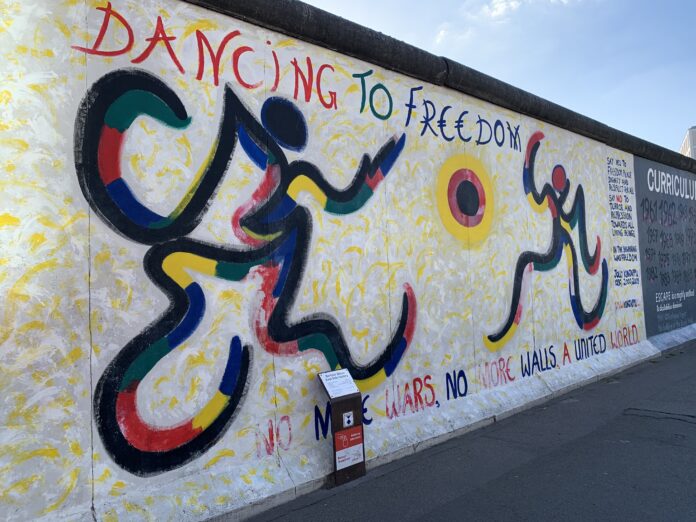(Note: The use of “native” in this essay refers to all native inhabitants of land around the world, not just specifically Native Americans)
The subaltern refers to individuals or groups who are not only oppressed but also marginalized to the extent that their voices, experiences, and perspectives are excluded from mainstream discourse. The term was created and usually refers to peoples living under colonial projects of the past, like colonized subjects of lower castes in the Indian sub-continent or in African nations.
The elite is ignorant of the desires of the subaltern, for the subaltern dreams of a society devoid of an occupying force, and this poses an existential threat to the elite. The lavish lifestyle and blissful ignorance of the elite depends on the upheaval of the native society from its original inhabitants and the building of a new one. Perhaps they will destroy their villages and forcefully remove the native man. They may even build their own villages, and indeed they do.
The villages and towns of the colonizer are going to be retaliated on by the natives, and to defend the occupier’s sense of safety, their villages are fortified, now better described as compounds. This is a necessity for the colonizer’s new homes to exist, as they destroyed the once harmonious society in exchange for one writhe with conflict and senseless violence. Perhaps the occupier might feel still insecure under this arrangement. Despite his relatively long distance from the native he once conquered, the occupier cannot fully repress in his mind the ambient threat of resistance.
So, the occupier will build barriers to exile and further humiliate the native. He will relish the world’s complacency in defending the human rights of the native, and he will relish his ability to conduct such humiliation with particularly wretched impunity. Soon, the native’s sons will grow up surrounded by walls and war-torn families. The land on which his villages once sat are now grand palaces of the occupier.
What now exists is a hyperreal image of the former land of the native. The production of the new colonial society has been underway for so long that soon enough all those who remember the native society which existed before it will have died. Just as the native dies, so does his memory, along with the nuances and beauty of his nation before the arrival of the colonizer. The absence of such memories of the before time signifies a horrific transformation, for without them, it allows the colonizer to question if the native society existed at all. The legitimacy of the occupier’s new cities and nationhood depends on the forgotten native, for the occupier’s society is now mistaken as the real thing.
The voices of the native’s ancestors will scream inside the minds of the native’s children with agony and frustration. For the fences and barriers that divide what once belonged to his
people before now belong to the occupier. He will see this situation as natural and indeed it is naturalized. This is the Catastrophe.
The native father will indeed die as his hopes and aspirations did upon the arrival of the occupier, and the native son will soon be acutely positioned to continue the cycle. The native voice will be ignored for so long that a particular frustration will fester.
International forces may even step in to promote a compromise between the oppressed native and the colonizing force, but the colonizer will fight this proposal and not follow it, and the native will be intensely criticized for not simply accepting this fate of humiliation and the destruction of their people. The colonizer will cite that in this land it outnumbers the native, regardless of how exactly they came to outnumber the native, and the world’s “democracies” will believe such a lie.
The native will send its men and women in front of the faces of the civilian occupiers, by making obvious their injustice, the native hopes to reason with his colonizer. Instead, the colonizer will meet such peaceful demonstration with bullets.
Then, the native will fight with the meager weapons at his disposal, and the occupier will respond, with much greater force, with the world at its back and in unison they will say “Violent savages! How dare the native take control of his destiny?” The subaltern will, as it always has been, be met with the fury of the occupier. The native will exist in a permanent state of being an alien within his own home. A generation of native sons and daughters will forever be unable to flourish in a land which their ancestors once tended to.
The conditions in which the subaltern exist are indeed an unimaginable violation of their dignity, but the world will turn a blind eye. The subaltern will always be seen as the instigator of violence. For the subaltern cannot speak freely, he is driven to violence in an inhuman way that no man should be driven to.
The occupiers will forever live in fear of the subaltern’s ability to speak, so they will exert their influence to convince the world of its innocence. However, a new generation of citizenry will one day see the occupier and its culpability and unimaginable crimes. May we question now the narrative presented upon the native and reflect on the actions of the occupier. We must ask if the subaltern has been given the right to speak. The native man has such a duty to end the occupation as much as the world has a duty to.
The day the native regains his own land, it will be the return of the repressed in spectacular fashion.
“Each generation must out of relative obscurity discover its mission, fulfill it, or betray it.”
– Frantz Fanon, The Wretched of the Earth







